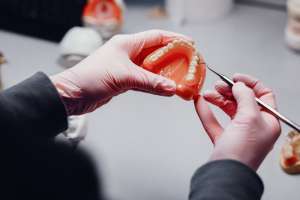Managing mental illness requires a comprehensive approach that addresses the complex and multifaceted nature of mental health. While self-care practices like mindfulness, exercise, and journaling play a valuable role in promoting well-being, they are not designed to replace professional medical treatment. Instead, the combination of self-care and professional help creates a balanced and holistic strategy for managing mental health challenges effectively. By integrating personal wellness practices with expert guidance, individuals can achieve sustainable progress and build a strong foundation for recovery.
The Role of Self-Care in Mental Health
Self-care encompasses a wide range of activities and habits aimed at improving mental, emotional, and physical well-being. It serves as an accessible and proactive way to manage stress, improve mood, and cultivate healthier routines. Practices such as meditation, physical activity, journaling, and maintaining adequate sleep are frequently recommended to support mental health.
Mindfulness practices, for instance, help individuals focus on the present moment, reducing anxiety and promoting emotional awareness. Exercise, on the other hand, boosts endorphins—chemicals in the brain that improve mood—while also reducing stress and improving energy levels. Journaling provides an outlet for self-expression, helping individuals process emotions and reflect on their thoughts.
These self-care activities empower individuals to take an active role in their mental health and establish healthy coping mechanisms. By incorporating these practices into their daily lives, individuals can create a sense of routine and stability that supports emotional balance. However, while self-care can be effective in reducing mild stress or enhancing overall well-being, it is not a substitute for professional intervention when dealing with mental illness.
The Limitations of Self-Care in Treating Mental Illness
Although self-care is a vital part of mental health management, it has limitations, particularly when addressing the complexities of mental illness. Conditions like depression, anxiety disorders, bipolar disorder, and others often involve biological, psychological, and environmental factors that cannot be fully addressed through self-care alone.
Self-care practices typically focus on short-term relief and emotional balance. While they may alleviate symptoms temporarily, they are not designed to address the underlying causes of mental illness. For example, mindfulness and journaling can help manage feelings of sadness or worry, but they cannot correct imbalances in brain chemistry or provide structured guidance for addressing long-term challenges.
Relying solely on self-care can also lead to frustration when progress is slow or symptoms persist. Individuals may blame themselves for not “getting better” despite engaging in self-care activities, which can exacerbate feelings of hopelessness. Recognizing that self-care has limitations is essential to understanding the importance of professional intervention in managing mental illness.
The Importance of Professional Help
Professional help is a cornerstone of effective mental health treatment. Medical experts, including therapists, psychiatrists, and other healthcare professionals, have the training and expertise needed to diagnose and treat mental illnesses accurately. They can provide tailored strategies and evidence-based treatments that address the specific needs of each individual.
One of the primary roles of medical professionals is to offer a formal diagnosis. Mental health conditions often present with overlapping symptoms, making it challenging for individuals to determine the root cause of their struggles on their own. Through assessments, evaluations, and clinical tools, medical experts can identify the condition and develop an appropriate treatment plan.
Therapy, for example, provides a structured environment where individuals can explore their thoughts, behaviors, and emotions with the guidance of a trained professional. Therapists use techniques such as cognitive-behavioral therapy (CBT) to help individuals identify negative patterns, develop healthier coping mechanisms, and build resilience.
In cases where biological factors play a significant role, psychiatrists may recommend medication to regulate brain chemistry and alleviate symptoms. Medications like antidepressants or anti-anxiety drugs can be highly effective in managing conditions that self-care alone cannot address. Regular check-ins with medical professionals ensure that treatment remains effective and is adjusted as needed over time.
The Power of Combining Self-Care and Professional Help
While professional help addresses the clinical aspects of mental illness, self-care complements this process by supporting emotional and physical well-being. When used together, self-care and professional treatment create a balanced and holistic approach that fosters both short-term relief and long-term recovery.
For instance, individuals undergoing therapy may use mindfulness techniques to manage anxiety between sessions. Exercise can enhance the effects of medication by improving mood and energy levels. Journaling can help individuals track their progress, reflect on their experiences, and reinforce insights gained through therapy. By integrating these practices with professional guidance, individuals can take an active role in their recovery while benefiting from expert support.
This synergy allows individuals to address their mental health challenges from multiple angles. Professional treatment provides the structure, tools, and medical interventions necessary for managing complex conditions, while self-care empowers individuals to cultivate habits that support their overall well-being. Together, these elements create a comprehensive strategy that promotes healing and resilience.
Building a Personalized Approach to Mental Health
Every individual's mental health journey is unique, and the balance between self-care and professional help will vary based on their needs. For some, professional treatment may take priority in the early stages of recovery, with self-care serving as a supportive tool. For others, self-care practices may help maintain stability during periods of remission while professional help remains available as needed.
The key to building an effective approach is recognizing the value of both self-care and professional intervention. Individuals should view self-care not as a replacement for expert treatment but as a complementary practice that enhances the benefits of professional care. By working collaboratively with medical experts, individuals can develop a personalized plan that addresses their specific challenges and goals.
Finding the Balance For Your Mental Health
Balancing self-care and professional help is essential for managing mental illness effectively. While self-care practices like mindfulness, exercise, and journaling provide valuable tools for improving emotional well-being, they are not a substitute for professional medical treatment. Medical experts play a critical role in diagnosing, treating, and guiding individuals through the complexities of mental health conditions. When combined, self-care and professional help create a holistic and comprehensive approach that promotes sustainable recovery, resilience, and overall well-being. By embracing both elements, individuals can navigate their mental health journey with the support, structure, and balance needed to thrive.






